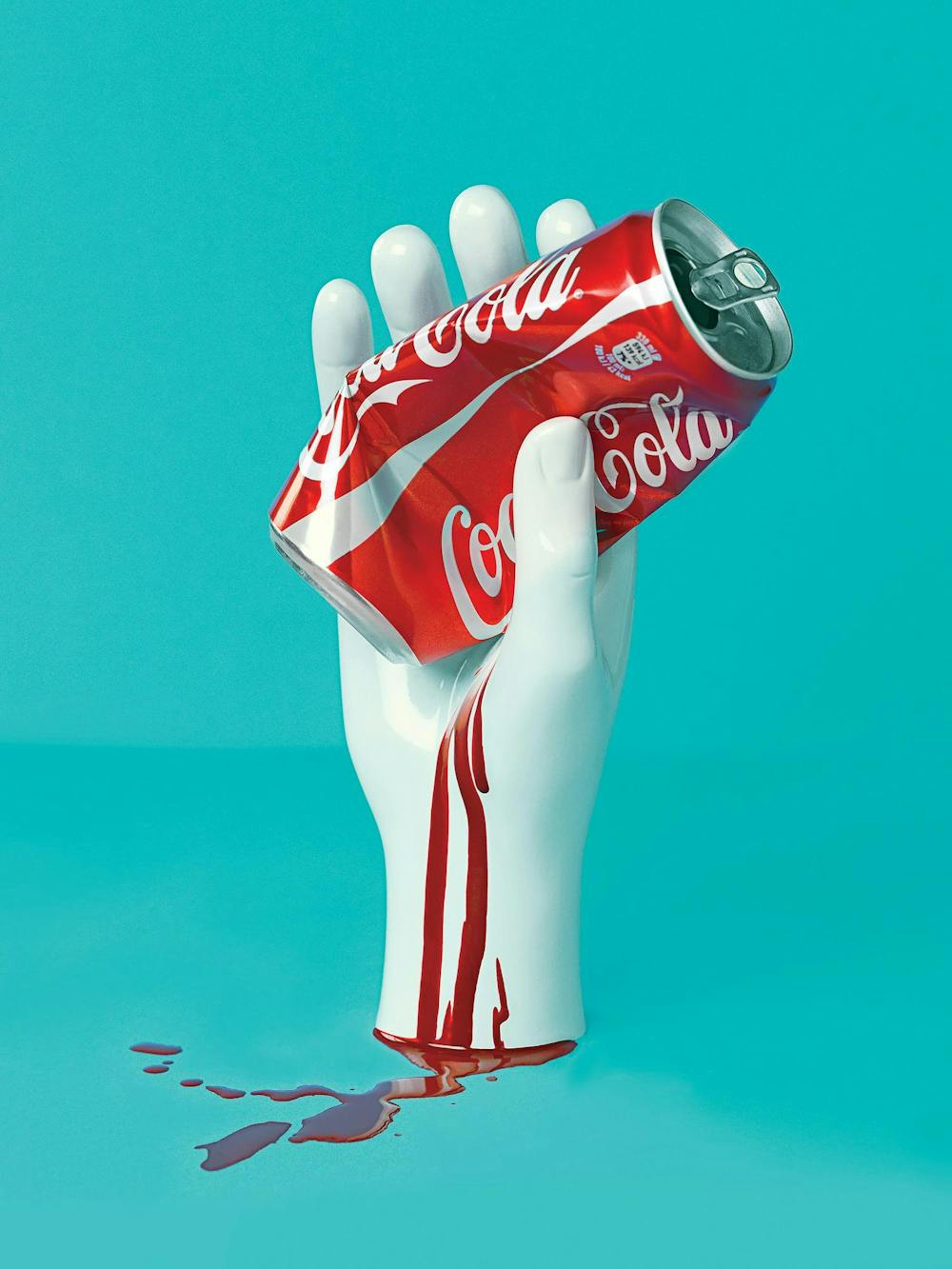“Ah, no such thing as ethical consumption under capitalism!” Waving an arm through the air, coughing a laugh, he said these words to me. Although, it appeared as if he spoke to himself, instead.
My beloved friend could recite excuse after excuse to justify his contributions to his morally ambiguous employer, but this was the line that struck me. Though an exasperated resignation, a jest drenched in buzzwords to softly terminate the conversation so he may return to his daily obligations sans remorse, a kernel of truth hid within to expose the unspoken nuance of the matter.
Indubitably, it was impossible to discern whether the company in question was evil in its entirety.
Indeed, the international conglomerate he worked for provided thousands, if not millions, of jobs across the world. Indeed, the shareholders profited from a product that was in demand and, arguably, many enjoyed. Of all things, it even had its very own charity branch!
In the same breath, however, it is equally true that the company could be linked to increased crime and deaths, impoverishment of vulnerable communities, lobbyist practices, animal abuse, child labor exploitation, political interference and decisive monopolistic strategies that cannibalize local businesses. Why, the behemoth could extend its tendrils wheresoever it pleased, for it had enough capital.
And yet, my friend confused me as he shared with me stories of his colleagues: how they enjoyed Thursday night trivia in the hearty comforts of windy Chicago, their outings to regional amusement parks, the whiteboard doodles and polls in the office entrance.
I heard about their battles over the better local pizza or sandwich franchise, the nonsensical patriotic support of sports teams in friendly banter and the support they provided for one another.
They were not completely distinct from my friend, who has a refined moral compass. With horror, I realized they were good people. Some disingenuous, some with improper political opinions, all imperfect but ultimately simply good, kind, welcoming people.
All serving the beast.
Good people, in collaboration, upholding the machinery of an entity that has caused paramount harm to thousands, if not millions of humans, not unlike them. Do they ever realize that? Would it make a difference?
Afflicted as they may be, good people work in bad places. Does that make them bad people?
We tend to attribute moral status based on one’s actions, but when they become obfuscated through the corporate world, the repercussions turn hazy. Where does one’s proportional moral responsibility begin or end?
It would be absurd to attribute blame from executives’ reprehensible decisions to the technical support summer intern, yet her labor directly enables the executives to carry out their intentions. Why, she never intended to poison the water supply of a community on the other side of the globe — she was merely fulfilling yet another task in her Google Calendar and fixing a bug in the website back end code. These two events are so distinct, yet all falling under the same umbrella of the machine.
Inevitably, the purpose of a system is what it does.
And the corporate system can make good people do bad things with a cold, calculated ease.
We lose sense of our humanity, our individual responsibility, in the bureaucracy. Somewhere amidst the Zoom meetings, the PowerPoint presentations, the spreadsheets deriving data from data from data, we lose sight of the impact of our efforts. We labor for monetary support, indeed, but that does not remove the heart-wrenching, inescapable fact that every action must bear its due consequence.
We rightly blindfold ourselves, arguing that if it were not us, someone else would do it. Tragically, we are absolutely correct. Does that make it right? Is a coerced crime any less impactful on the victims?
We may not choose to drop the bombs on civilians, but we very well design them.
Many workers of countless tragedies — the Holocaust, the Palestinian genocide and countless more — do not witness the full force of the hurt they bring into the world, lost in the calculations, efficiency rates and dinner pleasantries.
And they may have been human, just like you or me. They might have fought over the best football team or the better Christmas meal. And yet they were so inhuman. How can we ever make sense of that? How can we hope to be any different?
Thus, what is the worth of your labor to you? Is it all to make some money or personal satisfaction? Is that all that matters to you? Your efforts are redirected in a zero sum game, abusing your economical vulnerability for profit at the expense of unseen faces, unknown stories: rounding errors in the bottom line — not people, not lives but margins, deficits, leverage and scalability.
Alas, my friend — in all his unknown wisdom — was correct. There is no such thing as ethical consumption under capitalism. What he forgot to mention, however, is that we do not need to play along.
Carlos A. Basurto is a senior at Notre Dame studying philosophy, computer science and German. He's president of the video game club and will convince you to join, regardless of your degree of interest. When not busy, you can find him consuming yet another 3-hour-long video analysis of media he has not consumed while masochistically completing every achievement from a variety of video games. Now, with the power to channel his least insane ideas, feel free to talk about them further at cbasurto@nd.edu.










